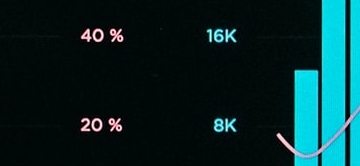Repudiation of the public debt, monetization of this debt, new taxes or international solidarity are the four possible ways to get the economy back on track after the shock, writes Jean Tirole. According to him, recourse to the ECB will be a more likely solution than coronabonds.
Four scenarios to pay the bill for the crisis
Public spending related to the Covid-19 crisis is essential to fight the epidemy and to protect fragile workers, firms and financial institutions. But it will leave States with considerable debts if, as is likely, the health crisis persists. Who will pay the bill? Several hypotheses are possible.
First hypothesis: debt repudiation. This is a risky solution, as it would affect confidence in the State. No longer able to borrow, the State would be required to balance its budget at the same time as having to continue to pay its current expenses, restarting the economy, investing in hospitals, etc.
Second hypothesis: tax. States levy exceptional wealth and income taxes on the wealthiest as well as on the middle classes, to fill the large hole in public finances. Another form of disguised tax is to oblige banks to accept new issues of Treasury bonds, at rates that do not reflect the ensuing inflation (economists call it "financial repression"). Inflation is a classic post-war phenomenon. This is how the United States and Great Britain reduced their public debt after the Second World War.
Fragility of European banks
Financial repression would be difficult in the Eurozone, and not only because of the fragility of its banks. It would require agreement among countries on the degree of repression. And it would worsen the risk-taking that has already been tolerated by regulators since the Eurozone crisis. In Italy, for example, banks have a lot of Italian government debt, and bank regulators do not require them to have equity capital to resist a loss in value of that debt. The country's difficulties then hit the banks - and vice versa (economists refer to a “doom loop”).
Third hypothesis: monetization of the debt. The central bank buys public debt. In principle, this debt must be purchased on the secondary market and then repaid. These two constraints are, however, more formal than real. The new debt can be bought on the primary market by a bank which resells it to the ECB. And there is no formal deadline for reimbursement by nation states – what is temporary can become permanent.
Focus on the poor
Such purchases are presumed to be inflationary. But there was no inflation following "quantitative easing", the massive purchases of debt made by central banks after 2008. This increase in liquidity should have increased demand and pushed prices up. But this did not happen due to deflationary expectations and hoarding. Could inflation restart tomorrow after strong monetary creation? No one knows. If this were to happen, the “payers” would be the holders of funds in euros and current accounts.
Monetization could be interesting, with two conditions. The first is to pay attention to the poorest, whose only savings are often housed in a bank account. The second, "the bull in a china shop", is to preserve budgetary discipline within the Eurozone, in a situation where any government could spend freely by sharing the consequences with the rest of the zone. This requires reinventing the Stability Pact to allow the heavy spending necessary for restarting the economy and to preserve solidarity. Northern Europe must accept recuing Italy and Italy should accept to be under a program.
Fourth hypothesis: fiscal solidarity. There are antecedents of solidarity, such as the Marshall Plan after World War Two and European solidarity in the euro crisis over the past decade. To be certain, solidarity between countries with solid public finances and more fragile countries can be difficult to implement at a time when all countries are affected by the coronavirus, but the argument for solidarity is very strong. For example, Italy is not responsible for the pandemic that impairs its economy.
Pooling of debts
Several pooling mechanisms are in place in the Eurozone. In addition to the debt buyout by the ECB already mentioned, the European Stability Mechanism can raise up to €700 billion on the markets thanks to a guarantee from the European Union, but it is difficult to implement because it requires unanimity from the finance ministers of the Eurozone and can only offer conditional help to States in difficulty. A third mechanism is on the table: nine countries in southern Europe, including France, have proposed a joint issue of "coronabonds".
It would be beneficial to Southern Europe, but a pooling of debts seems unlikely. Solidarity is easier to organize when each country can be both a beneficiary as well as a loser. The asymmetry of starting points can allow a solidarity driven by empathy or well-understood interests (geopolitical or economic effects of the default of the other country), but this solidarity easily reaches its limits.
Support from the ECB therefore seems more likely to me than coronabonds: it is quicker to set up and does not require unanimity. And it is less transparent for public opinion in northern European countries, which have less debt (Germany has reduced its debt to less than 60% of GDP) and are worried about having to finance southern Europe.
Photo by Alex Kotliarskyi on Unsplash




